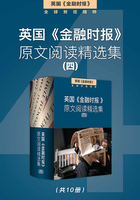
Facebook, Snapchat, Twitter have tough task on rules for kids (664 words)
By Duncan Robinson in Brussels and Murad Ahmed in London
“Can I download Snapchat, Mum?”
A conversation like this will play out in households with teenage children who use the messaging app across the EU when new rules requiring social networks to get parental consent from all users under the age of 16 come into force in 2018.
While parents may face awkward questions, the likes of Facebook and Snapchat will have the logistical and legal challenge of abiding by the new law. If they do not, they run the risk of fines of up to 4 per cent of global turnover under a sweeping data protection regulation finally agreed by MEPs in Strasbourg last week.
The scale of this demand is significant. Big social networks such as Snapchat, Facebook — and its picture-sharing service Instagram — as well as Twitter all have large numbers of young users.
About one in five under 11s in the UK has a Facebook account — even though this breaks the social network's own terms of service which requires users to be 13 or over, according to eMarketer, the research group. Among 12 to 17 year olds, this figure leaps to nearly 80 per cent.
Big technology groups will have to come up with a way of gathering parental consent for these users or banning them from the service. “It has the potential to be a headache,” says Phil Lee, a partner specialising in data protection at Fieldfisher, a law firm. Age verification has long proven tough to enforce online. “It is very, very difficult to do,” he added.
Snapchat uses an age gate, which forces a new user to enter their date of birth when they join the service.
Facebook employs a similar method, installing a cookie on a person's device if they admit to being under 13 — the social network's current age limit — which will stop them from signing up until their 13th birthday.
But both these methods are easily thwarted: cookies can be deleted, while children can lie. “By putting the age up, they will just drag more children into telling lies about their age,” says John Carr, who helps run the Alliance for Child Safety Online, which looks at child protection.
Getting the blessing from millions of parents will prove harder. Facebook has over 1bn users, with 300m in Europe. That gives it the scale to set up a scheme whereby parents who are also on the social network are able to vouch for their children, according to one person familiar with the company's plans. But lawyers suggest some companies may be forced to rely on blunt tools, such as requiring a credit card to access their services, according to legal experts.
All companies will be expected to take “reasonable” measures to ensure that teenagers are over 16 or have parental permission, according to the new law. But what counts as “reasonable” is yet to be determined. “It is a classic example of legislators pushing a problem to industry,” says Mr Lee.
Some industry insiders admit privately that there is little they can do to stop determined, smartphone-wielding children from using their services without their parent's say-so. “There will always be able to ways to get around rules,” says one person at a leading US internet company. A relatively high age limit will do more harm than good. “It will tarnish them by forcing them to break the rules,” the person adds.
A last-minute compromise gave individual countries the ability to lower the age from 16 to 13. Children's rights campaigners — such as Mr Carr — fear that inertia will result in many EU countries opting for the path of least resistance and leaving the age limit as it is.
Some countries such as the UK are expected to drop the limit to 13, while others including France have made clear that they will keep the age limit at 16.
This adds another layer of complexity for social media groups: they will have to come up with slightly different solutions for teenagers from Paris, Poznan or Peterborough.
请根据你所读到的文章内容,完成以下自测题目:
1.When will the new rules come into force?
A.2016
B.2017
C.2019
D.2018
答案
2.How many children under 11s have a Facebook account according to eMarketer?
A.80%
B.13%
C.20%
D.5%
答案
3.Who uses an age gate when new users join the service?
A.Facebook
B.Snapchat
C.Twitter
D.Instagram
答案
4.What is the attitude of social networks insiders towards the age limitation?
A.favorable
B.disgusted
C.powerless
D.hopeful
答案